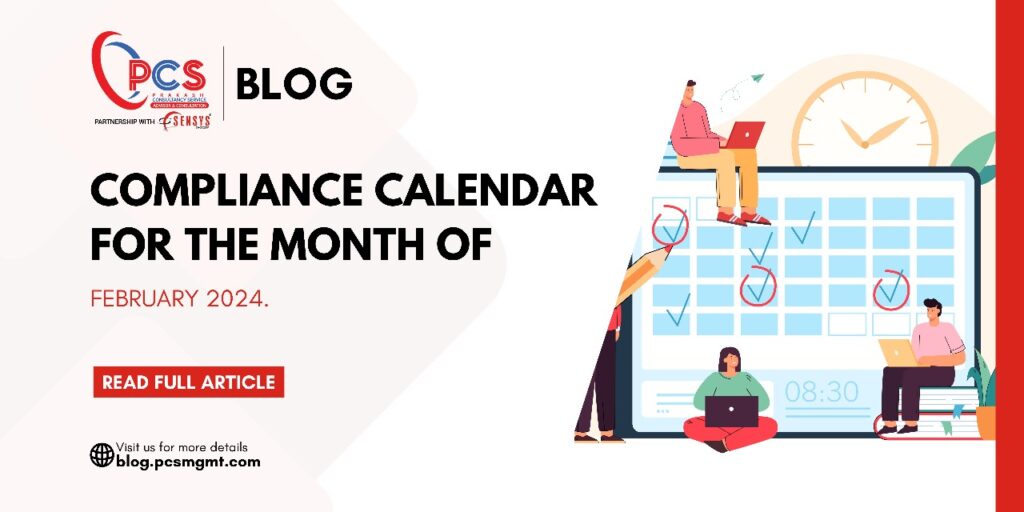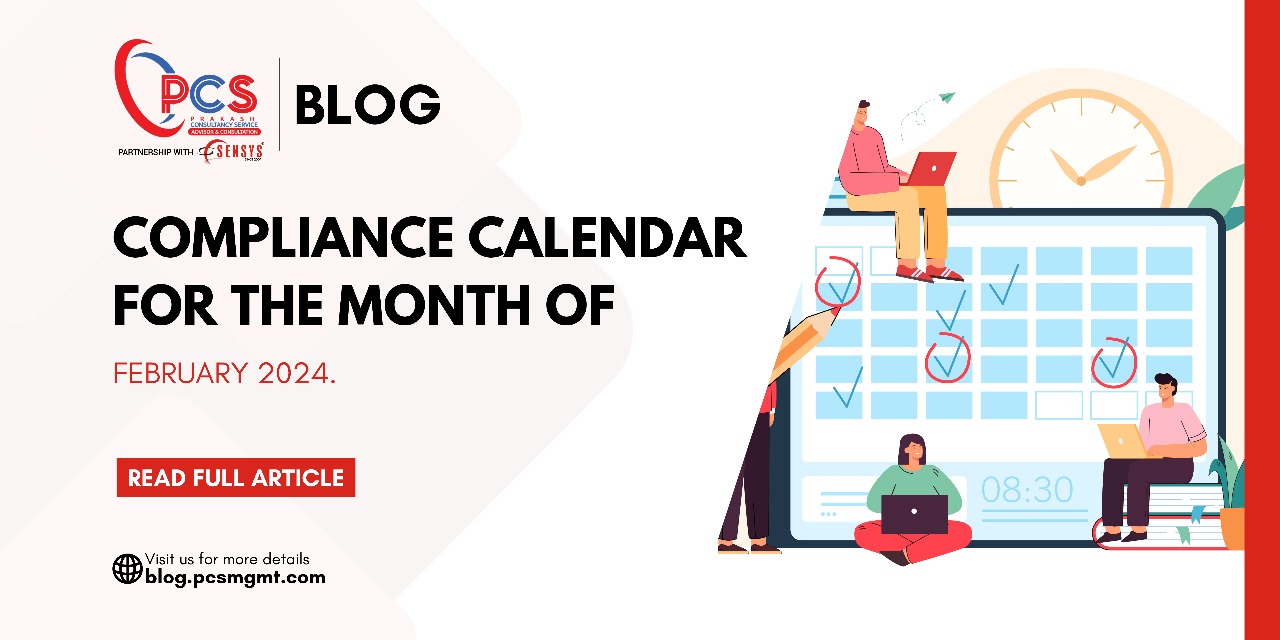
Introduction:
As we step into the second month of the year, businesses are presented with a fresh set of compliance challenges and opportunities. Staying ahead of regulatory changes, deadlines, and industry updates is crucial for maintaining a seamless and legally sound operation. In this blog, we’ll explore the key compliance considerations for February 2024 and how a well-structured Compliance Calendar can be your strategic ally in navigating this dynamic landscape.
- Tax Season Kickoff:
- February marks the beginning of the tax season in many jurisdictions.
- Ensure your Compliance Calendar includes deadlines for filing various tax documents, such as TDS returns, GST returns, and advance tax payments.
- Employee Provident Fund (EPF) Updates:
- Keep an eye on any revisions or amendments in EPF rates or regulations.
- Update your Compliance Calendar with EPF contribution deadlines and any changes in the contribution percentages.
- Statutory Filings and Returns:
- Verify deadlines for statutory filings specific to your industry and location.
- Incorporate these deadlines into your Compliance Calendar to avoid last-minute rushes and potential penalties.
- Labour Law Revisions:
- Stay informed about any changes or updates to labor laws at the central or state levels.
- Update your Compliance Calendar with the latest information to ensure ongoing compliance with all employment regulations.
- Health and Safety Compliance:
- Check for any updates in health and safety regulations, especially those related to workplace safety and employee well-being.
- Schedule safety audits and training sessions accordingly, updating your Compliance Calendar with these tasks.
- Industry-Specific Regulations:
- Industries such as finance, healthcare, and IT may have specific compliance requirements.
- Tailor your Compliance Calendar to include industry-specific obligations, certifications, or audits that are due in February.
- Contract Renewals and Agreements:
- Review contracts, agreements, and licenses set to expire in the coming months.
- Plan ahead for renewals or negotiations, ensuring your Compliance Calendar includes timely reminders for contract management.
- Environmental Compliance:
- For environmentally sensitive industries, keep abreast of any environmental compliance requirements.
- Integrate tasks related to environmental impact assessments, waste management, or emissions reporting into your Compliance Calendar.
Conclusion:
In the intricate tapestry of regulatory requirements, a proactive and well-organized Compliance Calendar is your compass for a successful and compliant journey. As February unfolds, make sure your business is well-prepared to tackle the evolving landscape of tax, labor, and industry-specific regulations. By incorporating these considerations into your Compliance Calendar, you’re not just meeting legal obligations; you’re positioning your organization for sustained success in a dynamic business environment.




